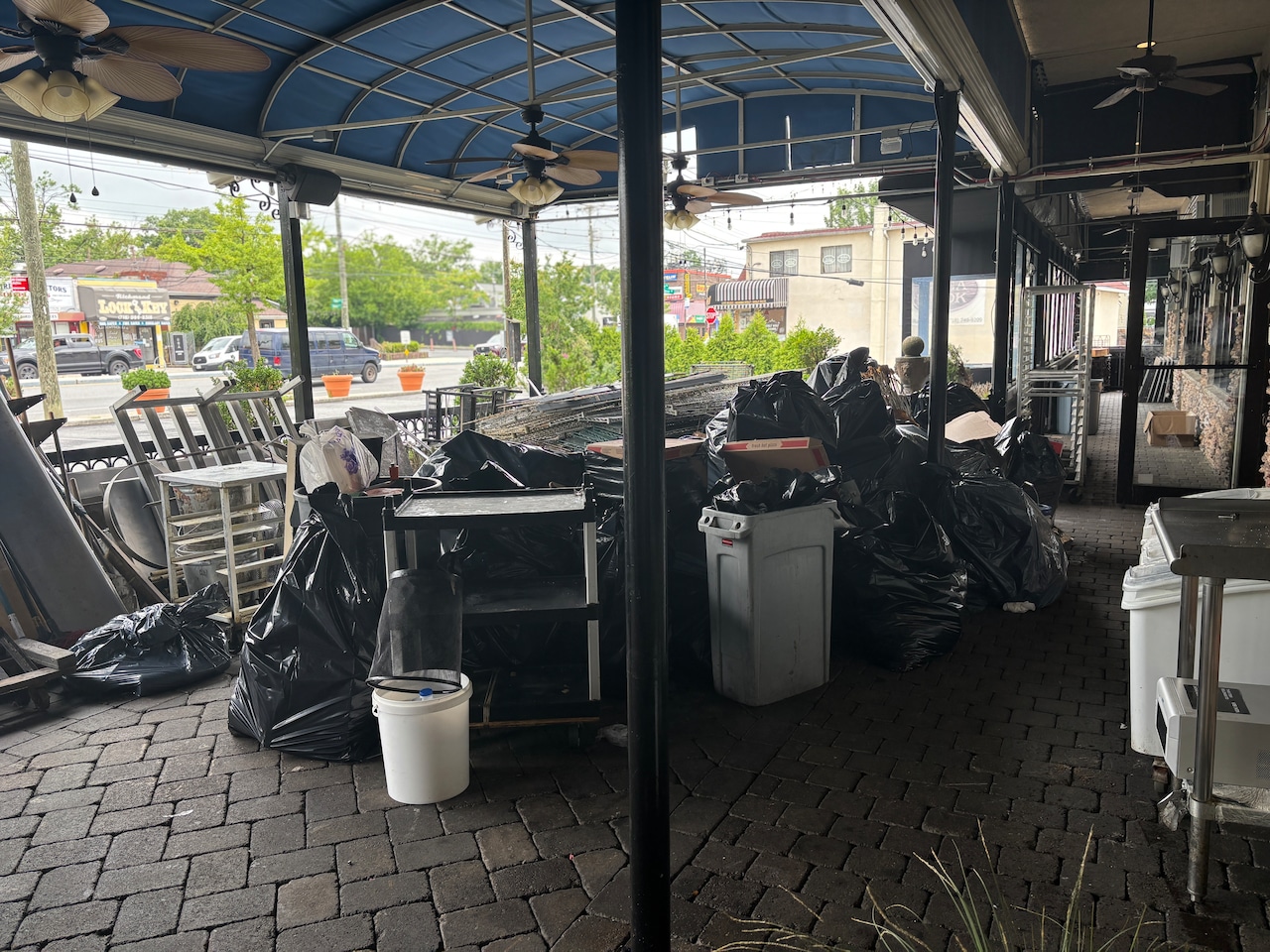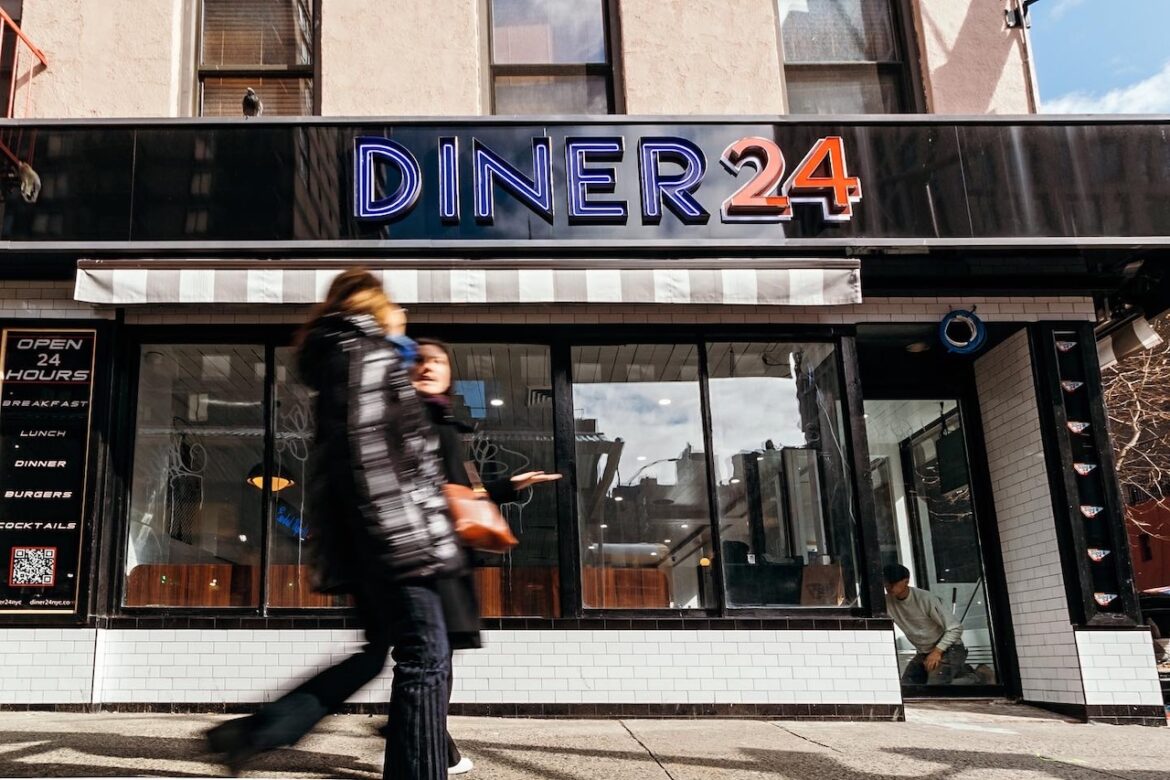STATEN ISLAND, N.Y. — Having owned a restaurant, worked in food service most of my life and now writing about it, not much surprises me. But Stratis Morfogen’s sensationalized interview in the New York Post rankled me—especially that headline: “NYC restaurateur cancels expansion plans following Zohran Mamdani victory: ‘I’m not signing.’”
Gloomy doesn’t begin to describe it. Where’s the Big Apple positivity? The love? We’ve had lousy mayors before, yet New York always finds a way forward.
Why Stratis is making headlines
Most Staten Island restaurateurs avoid going public on politics or money. It feels declassé, and customers don’t want to hear it. But Stratis? He put his name on it — and now he’s the talk of the town.
I’ve met Stratis before, about five years ago on Staten Island, and even have one of his books, Damn Good Dumplings: 60 Innovative Favorites for Every Occasion. (His better-known book is Be a Disruptor: Streetwise Lessons for Entrepreneurs—from the Mob to Mandates.) So I called him and asked him to explain further.
 More empty storefronts or vibrant restaurants? What’s the future? The recent past: Reggiano’s II of Great Kills closed permanently on June 30, ending a chapter for the sit-down Italian restaurant business with roots in Tottenville. The establishment at 4126 Hylan Blvd. had built its reputation on brick oven pizzas and generous portions of Southern Italian cuisine.(Advance/SILive.com | Pamela Silvestri)His bite of the Big Apple
More empty storefronts or vibrant restaurants? What’s the future? The recent past: Reggiano’s II of Great Kills closed permanently on June 30, ending a chapter for the sit-down Italian restaurant business with roots in Tottenville. The establishment at 4126 Hylan Blvd. had built its reputation on brick oven pizzas and generous portions of Southern Italian cuisine.(Advance/SILive.com | Pamela Silvestri)His bite of the Big Apple
Stratis Morfogen has decided to stop expanding his restaurant operations in New York City, citing a proposed minimum wage increase and concerns about the city’s business climate. He walked away from three Manhattan diner leases and is shifting focus to Miami instead.
His reasoning? Uncertainty. “I’m not comfortable opening more 24-hour diners if the minimum wage is going to $30 an hour,” he told me. “That would make it impossible for fast-casual restaurants to survive — unless you want to pay $22 for that $12 hamburger.”
He pointed out that restaurants with average tickets of $15–$25 per person can’t absorb those costs the way fine dining spots charging $80–$90 can. Add to that worries about police funding cuts for 24-hour operations and a lingering 6% rent tax from the previous administration that slashed margins from 16–20% down to barely 10%.
Despite his criticism, Stratis, 58, says he’s open to dialogue. “I actually think [the mayor] is a very smart young man, but his small business knowledge is zero because he’s never run one. I’d love to talk with him.”
His argument boils down to this: job creation comes from working people with moderate assets, not billionaires. “The billionaires don’t create jobs. It’s the hard-working people with $500,000 in assets — the ones who open bodegas, fast-casual spots, diners. Those are most of the people who create jobs.”
Chef Marta Viguri and owner George Burke pose in a dining room at Burke’s Landing in Rossville, circa 1970. The beloved restaurant later became the Historic Old Bermuda Inn. Staten Island AdvanceA call to action
Here’s my take on the conversation: The restaurant business has been around for thousands of years — from ancient Rome’s thermopolia to Parisian cafés to Delmonico’s in 1827 and one of Staten Island’s first restaurants, the Rose & Crown, commemorated by a stone marker at the top of New Dorp Lane. Automats, fast food chains, delivery apps — every era brings disruption. Yet the fundamentals remain: margins matter as do policies.
And my message to restaurant owners, to Stratis, and to everyone who loves dining out: unless you’re running for office, it’s time to get more involved in local politics. Step out of the kitchen. Attend community board meetings. Join collectives like the NYC Restaurant and Hospitality Alliance — there’s strength in numbers. Call your local legislators: city council members, state senators, assembly representatives and the lean staff at the Borough President’s office. Local is the key — these are the people who can change laws before issues spiral further.
If you don’t, voices like Stratis will keep sounding alarms about a new mayor before he’s even begun — and about policies that exist because the food industry hasn’t spoken up. I hope owners can pull together and put their collective feet down to make changes. Otherwise, we’ll be staring at a landscape of legal weed shops or, perhaps worse, empty storefronts.
If you purchase a product or register for an account through a link on our site, we may receive compensation. By using this site, you consent to our User Agreement and agree that your clicks, interactions, and personal information may be collected, recorded, and/or stored by us and social media and other third-party partners in accordance with our Privacy Policy.


Dining and Cooking